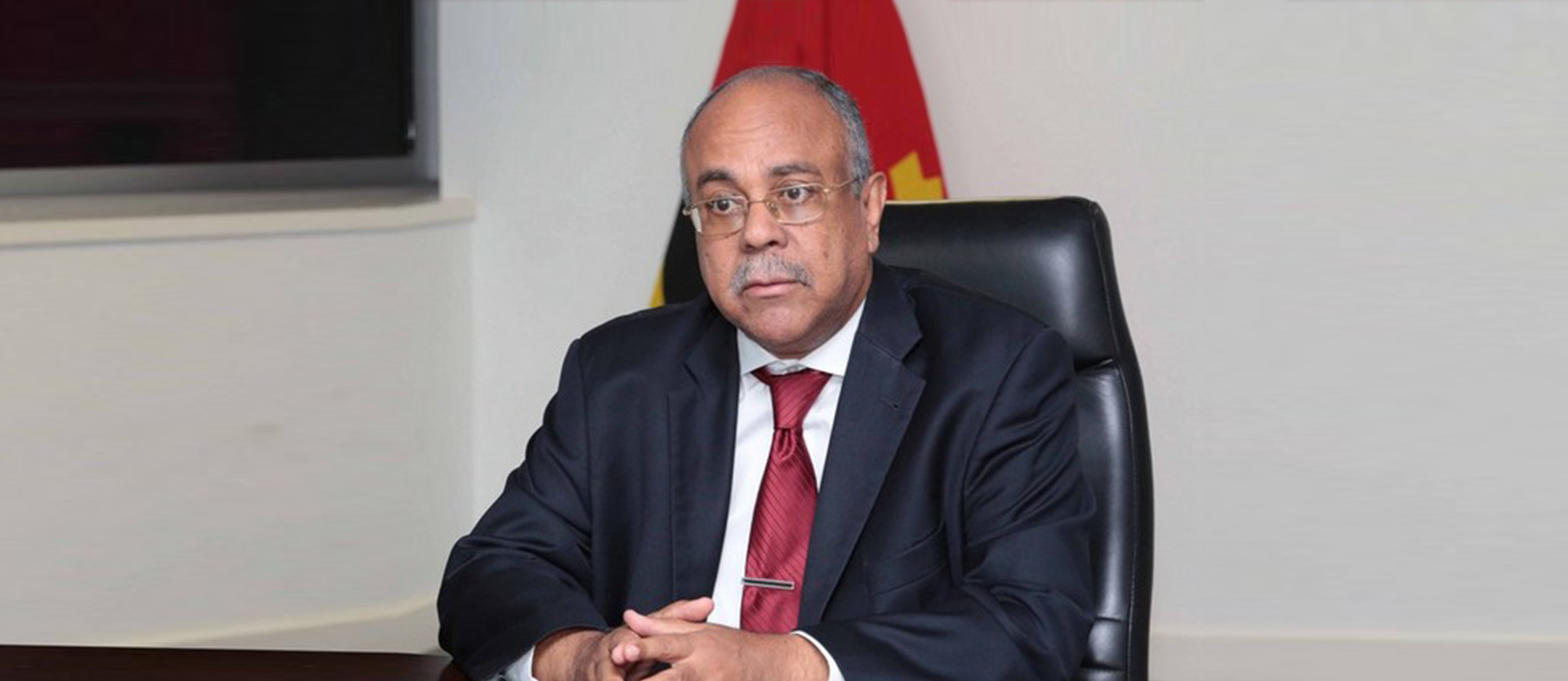
03 May Angola: The government ‘takes the bull by the horns’
Angolan Minister of Social Communication Aníbal João da Silva Melo provides an insider’s guide to the country’s development plans.
Could you provide a background to the economic situation in Angola when President João Manuel Gonçalves Lourenço’s new government came to power in 2017?
Angola had been in a recession that began in 2014 and was caused by the fall in the price of oil on the world market. In addition to that, due to some serious management problems under the previous administration that were identified during our first year of being in office, the new government found itself with empty coffers.
In the Angolan national treasury there were only sufficient funds to pay seven months of salaries to public officials. As well as that, the liquid international reserves of the country from 2014 showed a very steep downward trend. Inflation had once again grown, and had reached a rate of between 30 and 40 percent. The exchange rate was an administrative and artificial exchange rate, and there was a huge gap between it and the real rate.
What were the first steps the government took to improve the economic position?
It was a very critical situation and things were worse than we had imagined. That is why the first measure of the government of President Lourenço was to approve a macroeconomic stabilization plan with different objectives. First, to reduce the gap between the two exchange rates by ending the administrative exchange rate and introducing a fluctuating exchange rate.
Urgent measures were also approved to create a better business environment. The positioning of Angola in the World Bank’s Doing Business ranking lists was very low and it was essential to improve that. So, one of the first initiatives of the new government was to alter the legislation on private investments — simplifying the law and ending the requirement for foreign investors to have mandatory partnerships with Angolan partners.
At the same time, the government changed our took migration regulations: simplifying the visa process, establishing visa agreements with some countries, and creating a business visa to facilitate the attraction of investors and to encourage the arrival of tourists.
How have initiatives introduced by the government changed Angola’s economic standing?
Our government was inaugurated in October 2017, which was still a year of recession, as was 2018. But the economic expectations for 2019 are unanimously positive, from not only Angola’s government but also international institutions such as the World Bank and the International Monetary Fund. For 2019, economic growth is expected, supported by the achievements of the macroeconomic stabilization plan.
At this moment we can say, without any doubt, that the stabilization measures are working and are paying off. In February 2019, for example, we recorded the lowest inflation rate for the last three or four years — we estimate that it is below what the government had budgeted for. We are realistically optimistic that the effects of our stabilization measures and our promotion of domestic production will begin to be felt in the pockets of consumers and in the daily life of citizens during 2019. This is the main objective of all the government’s work.
Increasing domestic production and economic diversification are important focuses for your government. Can you tell us about the national Production, Export Diversification and Import Substitution (PRODESI) program you have implemented to help achieve these things?
We are betting seriously on economic diversification. The objective of the PRODESI program is to stimulate the agriculture and agribusiness sectors as well as to promote tourism, which has a lot of dormant potential. It is a very broad program with both bureaucratic and economic measures, and the government is now beginning to implement it.
Included in it are measures to stimulate the domestic production of goods, in order to reduce our level of imports of foods that are part of the basic basket or are raw materials for industry. The new priority in the agricultural sector is to support small family farming. While the government will not forget large agricultural investments, they will no longer be the priority.
An important part of PRODESI is that Angola’s armed forces and the Ministry of the Interior will be obliged to acquire materials from local producers. This is very significant because we are talking about two of the agricultural sector’s biggest internal clients.
What role do hydrocarbons have in Angola’s future economy?
It is obvious that a country that has oil must learn to use these riches correctly, and return the revenues to the economy in order to support diversification and serve the social areas of education and health.
The government is acting to reorganize the oil sector because, in recent years, not only has the price of a barrel of oil fallen but so has Angola’s oil production and we stopped gaining new investments in the sector. We have introduced important reforms quickly that have addressed this stagnation.
The first of these was to separate the concessionaire function from the production function in the public sector. Historically, Sonangol had both of these functions but we have created a National Oil, Gas and Biofuels Agency that has taken over Sonangol’s regulatory roles.
Measures have also been taken to provide clarity to our main international oil investors to encourage them to reinvest and return to prospecting activities in dormant areas. The results of these are beginning to be felt.
Angola has a reputation for corruption. How is your government tackling this?
Previous governments spoke of corruption but effective measures to fight it were not implemented. President Lourenço made a commitment to change this in the 2017 elections, in which he had a clear campaign slogan: “Improve what is right and correct what is wrong.”
Corruption was a problem that the whole of society recognized, unanimously, needed to be addressed urgently. It had reached a level where wrong practices were considered normal and acceptable. This was an obstacle for private investment. A favorable political climate had to be created so that competent institutions could do their job and the country could really advance. The president said he would “take the bull by the horns” and he did from day one.
What are the other main challenges Angola faces in attracting foreign direct investment and what are some of the country’s attractions for investors?
The most important challenges would be the development of transport, water and energy infrastructure, and education. Internal and external communication is another challenge we must face. We need to show that the current Angola is not the Angola of the war and there are no problems with citizen security.
We need to communicate that Angola, with this new government, is a new country offering great opportunities that hopes to establish more relationships with international partners. Angola is a strategically located country that can serve as a platform for other regions of Africa and our human capital is another excellent competitive advantage that we need to communicate to the international community — Angola is a culturally and ethnically diverse country that welcomes all those who visit us.
How do you see the relationship between Angola and Japan developing in the future?
The development of the Port of Namibe represents the first substantial example of Japanese funding for a major infrastructure project that is fundamental for the development of Angola. I think that, soon, we will begin to discuss the implementation of digital terrestrial television as Angola has adopted the Japanese standard and we are going to work on it with Japan. This project opens up great possibilities for associations with Japanese companies in that and other sectors. And, undoubtedly, 2019’s Tokyo International Conference on African Development will be an excellent opportunity to intensify bilateral cooperation in even more projects.


